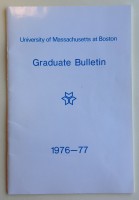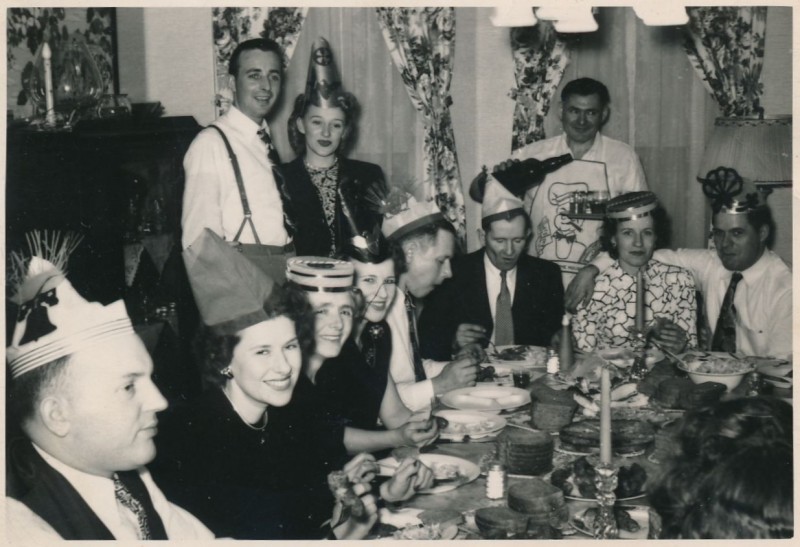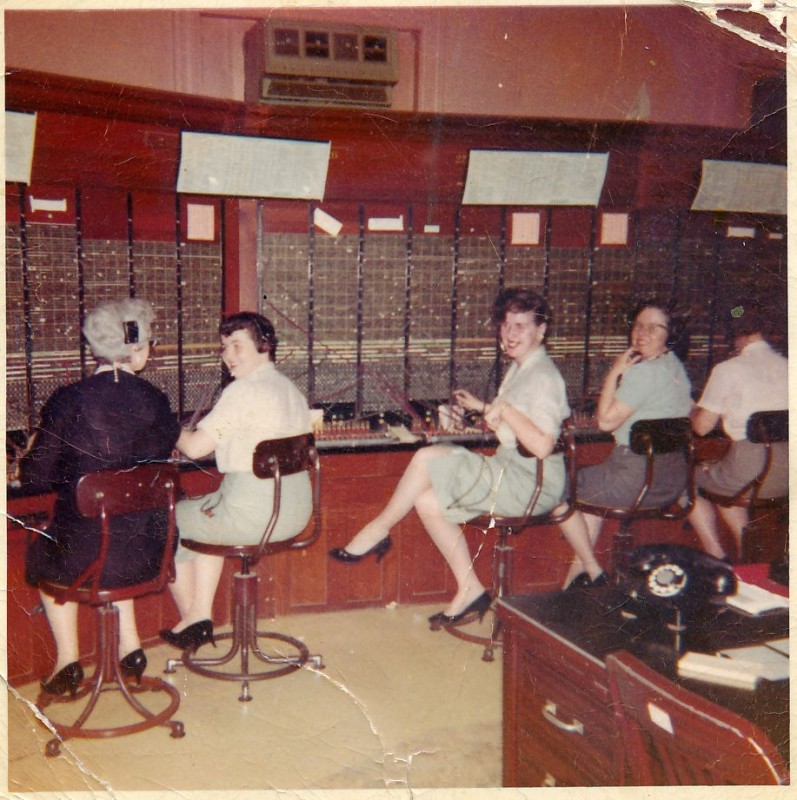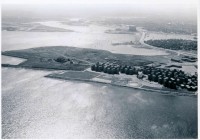
Aerial view of Columbia Point in Dorchester, the Columbia Point Housing Project and the Calf Pasture Pumping Station, 1960s.
The mission of University Archives & Special Collections at UMass Boston includes documenting the history of Columbia Point, the university’s home since 1974. Columbia Point has a long and storied history: it was a farm and calf pasture before and during much of the 19th century; it became the site of a pumping station that was vital to the city’s new sewerage system; it housed Italian prisoners of war during World War II; and, later still, it became the site of the 1,132 unit Columbia Point housing development. (You can learn more about the complex histories of Columbia Point by visiting our research guide and this blog about Columbia Point.)

Joseph Corcoran. Courtesy Corcoran Jennison, Inc.
Joseph Corcoran, a pioneer in developing mixed-income housing, has been a transformative influence in the development of the Point, and recently contributed several items of historic and scholarly interest to our Special Collections, including two videos and the digitization rights to the publication A Decent Place to Live. Through these archival contributions, Corcoran continues his strong support of the university. He is a member of the William H. J. Kennedy Society of the UMass Boston Founders Circle and, through the Joseph E. Corcoran Endowed Excellence Fund, provides an annual award to a faculty member in the College of Management who has exhibited excellence in teaching, curriculum development and/or research.
Joe Corcoran grew up in a mixed-income neighborhood in Dorchester, the youngest of eight children born to Irish immigrant parents. As he describes in his memoir Wasn’t That a Time! A Corcoran Family Memoir, 1925-1950, the benefits of growing up in a mixed-income neighborhood have inspired his life’s work.
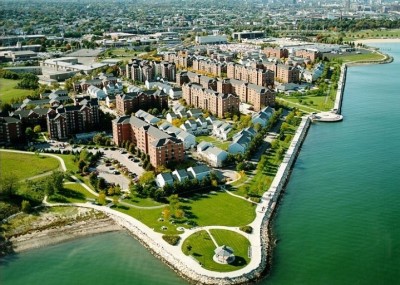
Harbor Point Apartments, ca. 2012. Courtesy Corcoran Jennison, Inc.
In the late 1980s, Corcoran Jennison Companies, the Boston-based development firm he co-founded, undertook the process of converting the failed Columbia Point housing project into a mixed-income community called Harbor Point, which has become a national model for the federal HOPE VI Program. The HOPE VI Program, through the U.S. Department of Housing and Urban Development, is described as “a National Action Plan to eradicate severely distressed public housing.” Corcoran’s approach to housing development has always been to focus on working from the very beginning with the primary stakeholders in any new development – those who will occupy or otherwise be affected by the construction of housing or business real estate. When developers Corcoran, Mullins, Jennison, Inc., forged a partnership with the residents to redevelop the Columbia Point projects, only 350 units were occupied, with the rest boarded-up and condemned. Thirty years later, Harbor Point on the Bay is a 1,283-unit mixed-income community still managed by this unique developer/resident partnership and is viewed as a model of mixed-income housing.
Corcoran recently donated two historic films to University Archives & Special Collections, both of which describe the development of Harbor Point, and both of which have now been digitized and are available to all online. The first, Harbor Point, Boston is a five-minute video commissioned by Corcoran Jennison and produced by Cambridge Studios. | Harbor Point, Boston from UMass Boston Archives on Vimeo.
A second film, Point of Change (21’52”) was produced and directed by Deborah Dorsey of Cambridge Studios in 1990, and includes more extensive footage from around Boston, as well as interviews with residents, government agency officials, and others. | Point of Change from UMass Boston Archives on Vimeo.
In addition to the above films, Corcoran recently shared the digitization rights for the book A Decent Place to Live: From Columbia Point to Harbor Point (2000, Northeastern University Press) with University Archives & Special Collections at UMass Boston. A Decent Place to Live, written by Jane Roessner, who also freely shared her rights in the book, is the redevelopment story of Boston’s Columbia Point, America’s first federal public housing project to be converted into private mixed-income housing in a 50/50 partnership with the existing residents and a private developer. The book chronicles the redevelopment process from its inception to completion, and navigates the long road of redevelopment.
A Decent Place to Live is an account of an historic transformation as well as a reference point for those involved in community redevelopment today and into the future. Thanks to the support of Joe Corcoran, University Archives & Special Collections was able to digitize A Decent Place to Live and to make the work openly available to researchers, students, scholars, journalists and the general public.
For more information about collections related to the history of Columbia Point in University Archives & Special Collections at UMass Boston, click here.
University Archives & Special Collections in the Joseph P. Healey Library at UMass Boston collects materials related to the university’s history, as well as materials that reflect the institution’s urban mission and strong support of community service, notably in collections of records of urban planning, social welfare, social action, alternative movements, community organizations, and local history related to neighboring communities.
University Archives & Special Collections welcomes inquiries from individuals, organizations, and businesses interested in donating materials of an archival nature that that fit within our collecting policy. These include manuscripts, documents, organizational archives, collections of photographs, unique publications, and audio and video media. For more information about donating to University Archives & Special Collections, click here or email library.archives@umb.edu.
 When: Saturday, April 1, 2017 | 10:00 am – 3:00 pm
When: Saturday, April 1, 2017 | 10:00 am – 3:00 pm
